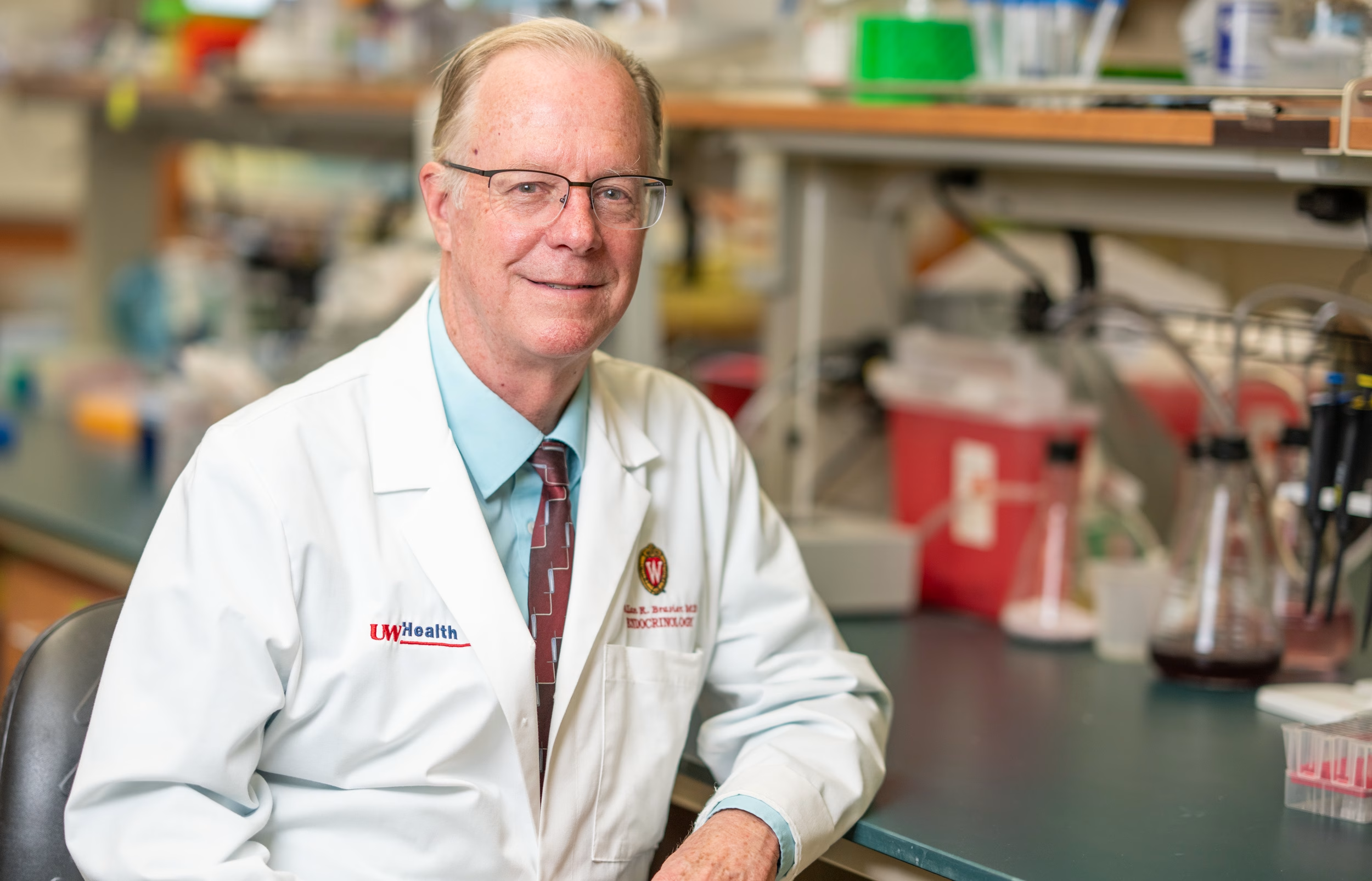Idiopathic Pulmonary Fibrosis (IPF) is a progressive scarring disease leading to the death of an estimated 40,000 individuals annually in the United States. With limited therapeutics available, patients have a median life expectancy of three to five years after diagnosis. The disease represents a leading cause for pulmonary transplantation.
A translational research team of cell biologists, pulmonary clinicians, engineers and medicinal chemists at the University of Wisconsin–Madison has been awarded an approximately $11 million, four-year Focused Program Grant from the U.S. Department of Defense to attack this complex disease (award #HT94252410543).
The program seeks to understand new mechanisms for how the scarring produces atypical lung cell responses, develop new imaging technologies measuring cellular metabolism, and advance targeted therapeutics delivery systems to improve therapeutic outcomes.
Dr. Allan R. Brasier, Executive Director of the UW Institute for Clinical and Translational Research and Professor in the Department of Medicine, will collaborate with with an investigative team that includes the laboratories of Drs. Seungpyo Hong, Director of the WiscNano Center in the School of Pharmacy; Nathan Sandbo, Director of the Pulmonary Fibrosis Foundation Care Center in Interstitial Lung Disease in the Department of Medicine; Paul Campagnola, Chair, Department of Biomedical Engineering, College of Engineering; and Lynn Schnapp, Chair, Department of Medicine, School of Medicine and Public Health.
UW–Madison’s Interim Vice Chancellor for Research, Cynthia Czajkowski, commented, “This program is a superb example of bringing UW–Madison’s strengths in transdisciplinary research to address a major unmet health need. The research strengths from across campus will advance mechanistic understanding and diagnostics for IPF.”
Learn more
You can read more about this research on the University of Wisconsin-Madison news site in a story by Will Cushman, “UW–Madison leading new research collaboration aimed at treating lung scarring diseases.”
